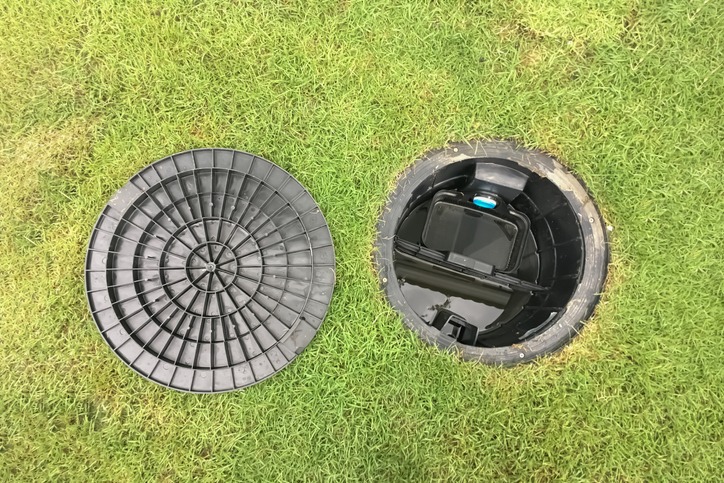How To Extend The Life Of Your Septic Tank
When was the last time you thought about your septic tank? Septic systems are a significant investment of time and money, and if you hope to reap the benefits of your tank's full functional lifespan, your septic tank shouldn't be far from thought. Without the proper information and background knowledge of their septic systems, homeowners may overlook many environmental conditions and factors that can reduce the lifespan of their septic tank substantially. That's why it's critical to ensure that your system receives routine septic system maintenance and prompt septic tank repairs whenever needed. Here, our Florida septic plumbers offer simple tips to extend the life of your septic tank.
Jones Plumbing & Septic Tank Service provides high-quality Florida septic services for all your septic tank and system needs so you can make the most of your investment. Contact us today to learn more about our professional septic tank services and request septic tank service!

Pump Your Tank On A Schedule
You might not think septic tank systems operate much differently than trash incinerators, but they are completely different. When you use your toilet or sink, the waste you flush down has to go somewhere (it does not simply disappear). If your septic system functions as it should and without any issues, it will remove your property's wastewater and, over a short period of time, filter the wastewater through a septic drain field, also commonly known as a leach field.
During this filtering process, sludge or hard waste slowly accumulates at the bottom of your septic tank. As it accumulates and if it isn't regularly pumped out, problems like wastewater backflowing into your plumbing system will arise shortly thereafter. How often should you pump your system? This will depend on the size of your household, the amount of wastewater created, and the capacity of your septic tank. In general, tanks should be pumped every 3–5 years or so.
Be Mindful Of What You Flush
Your septic tank is designed to process human waste, toilet paper, and water only. That means any other type of waste or item is inappropriate to flush down the toilet or wash down the drain when you have a septic tank. All too often, people forget the limitations of their septic system and toss what belongs in trash cans down the drain.
No matter what septic system you own, you should never flush anything but human waste, toilet paper, and water. If you put the following items (or any others) down the drain, you're likely to significantly reduce your system's functional lifespan and have to deal with the mess and stress of blockages, clogs, and accelerated build-up.
Keep Track Of Your Water Consumption
As with most other systems in your home, the more you use them, the more your system will accumulate wear and tear over time. In the case of your septic tank, the more wastewater your property produces, the more your septic system and drain field have to work to accommodate the demand. A great way to extend the functional lifespan of your septic tank is to use water efficiently and monitor the amount of wastewater you produce regularly.
Limiting the amount of wastewater you flush can maximize the life of your septic tank and overall system. To conserve water, you should also repair any leaking or burst pipes, faucets, or shower heads, wait to run the dishwasher until it's full, and only do laundry when you have a full load. You might also consider installing high-efficiency toilets and shower heads on your property, as these systems effectively conserve water, can help you get the most out of your septic system, and reduce costs on monthly utility bills.
Tend To The Land Around The Tank & Drain
Proper wastewater treatment requires regular septic tank maintenance, inspections, and prompt repairs, but it also requires healthy grass and soil. In fact, the soil quality on your property is key to your septic system functioning and enduring for years to come. The more vegetation surrounding your system, the greater the amount of wastewater is absorbed and broken down, but grass is the best vegetation for your system.
Trees and shrubs, particularly those with very large root systems, can entangle within the system and cause problems. One of the best ways to ensure your property has high-quality soil is to divert runoff water away from the soil. To do this, you should divert water from sump pumps, gutter drains, downspouts, or hard surfaces from the drain field. A small amount of water accumulation is fine, but too much water will saturate the soil and reduce the effectiveness of your system's filtration process.
When In Doubt, Call A Florida Septic Pro
Whether you've just purchased a property with a septic system, you have questions or concerns about the state of your septic system, you want to hire a reliable, professional company for septic tank cleaning, or you just need a routine inspection, Jones Plumbing & Septic Tank Service has you covered! Our septic professionals can provide all the information you need to properly manage and maintain your septic system for a long lifespan.
We also provide a complete selection of plumbing and septic tank services so you can know that your system receives everything it requires during every service call. For those with septic tanks, being equipped with the right information and experts ensures their septic systems endure a full, uninterrupted, and unproblematic lifespan. Contact us today to schedule septic tank service!
